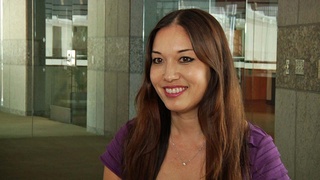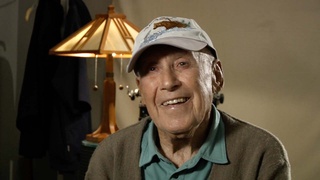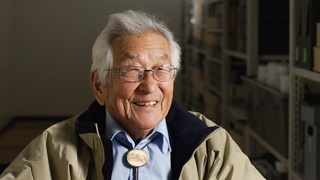Interviews
State Department records show concern for treatment of Japanese American internees
When you look through State Department records, especially, you will discover that the State Department was very concerned about how Japanese Americans were treated here because Imperial Japan would find out about it and they could mistreat prisoners, who were American, who they were holding. And so it would be a tit-for-tat situation. And the State Department was very interested and concerned that Japanese nationals and Japanese Americans here [in the U.S.] be treated decently so that Americans held as prisoners and internees by Imperial Japan would be treated decently. So [the] State Department would never have allowed and, therefore, get word to [Henry L.] Stimson, Secretary of War, [would not have] allowed anything like that to happen.
There’s even a letter that Michi has published in her book—it’s a Stimson letter— talking about possible reprisals, threatening Japan that the they could do something to us [who were in the camps] if they [Japan] did not treat Americans right. There was a tremendous concern [by top level government officials that] so it would not have happened. In other words, the camps, we would not have been forcibly, by the point of bayonet, been forced into the camps. I am positive of that.
Date: August 26, 1998
Location: Virginia, US
Interviewer: Darcie Iki, Mitchell Maki
Contributed by: Watase Media Arts Center, Japanese American National Museum
Explore More Videos

Rising Up To A Challenge
(1938-2020) Japanese American attorney and civil rights activist

Congressional Hearings
(1938-2020) Japanese American attorney and civil rights activist

Writing a novel on the 442nd
Jewish Japanese American journalist

Meeting Hamako in Japan
(1916 - 2013) Member of the U.S. Military Intelligence Service

Meeting Mr. Amano
(1916 - 2013) Member of the U.S. Military Intelligence Service

Marriage and Returning to US
(1916 - 2013) Member of the U.S. Military Intelligence Service

Feeling prejudice while looking for jobs
(1919 - 2015) Nisei who served in World War II with the 442nd Regimental Combat Team

Generosity of the Italians
(1919 - 2015) Nisei who served in World War II with the 442nd Regimental Combat Team

Invited to teach at Harvard by his boss
(1919 - 2015) Nisei who served in World War II with the 442nd Regimental Combat Team

The riot in Manzanar
(b. 1921) Nisei veteran who served in the occupation of Japan

The Dopey bank that survived the war
(b. 1934) Award-winning Disney animation artist who was incarcerated at Topaz during WWII

Evacuated to the Jungle
(b. 1938) Philipines-born hikiagesha who later migrated to the United States.

Captured by Guerillas after bombing of Pearl Harbor
(b. 1938) Philipines-born hikiagesha who later migrated to the United States.

Grandfather picked up by US Army
(b. 1952) Former banking executive, born in Hawaii

Father's business partner operated their farming business during WWII
(b. 1935) Sansei businessman.
